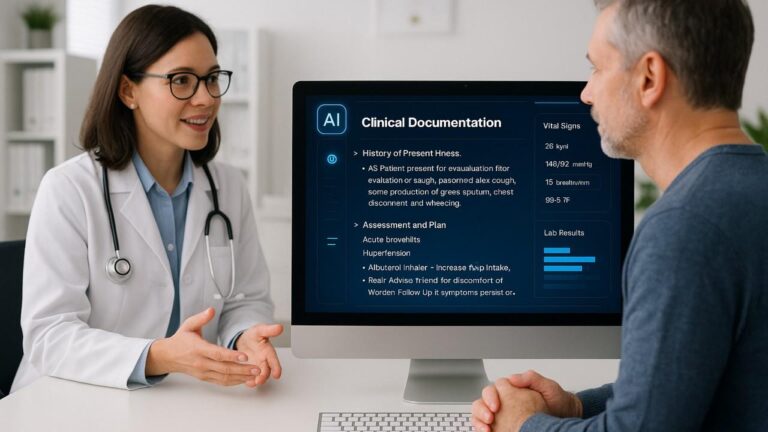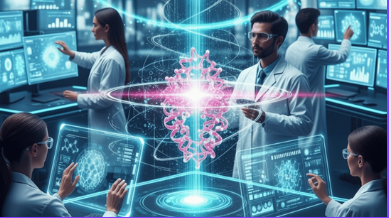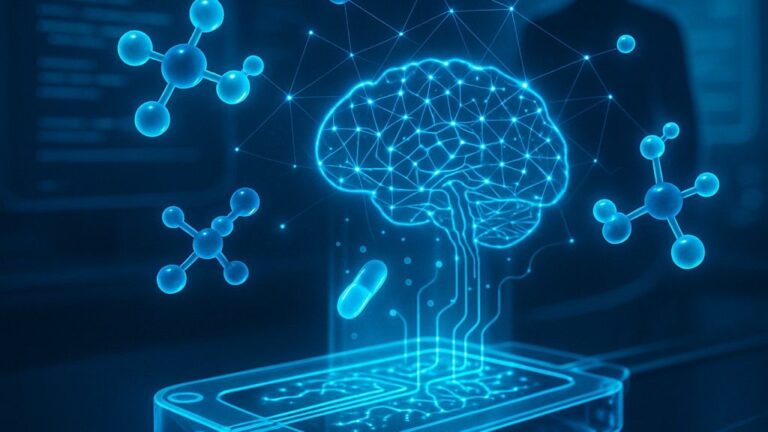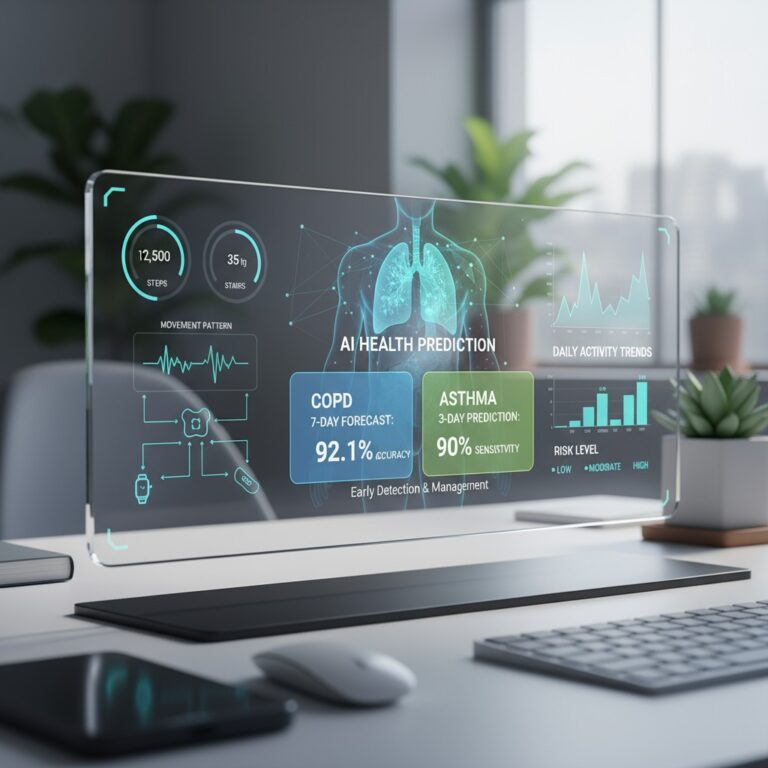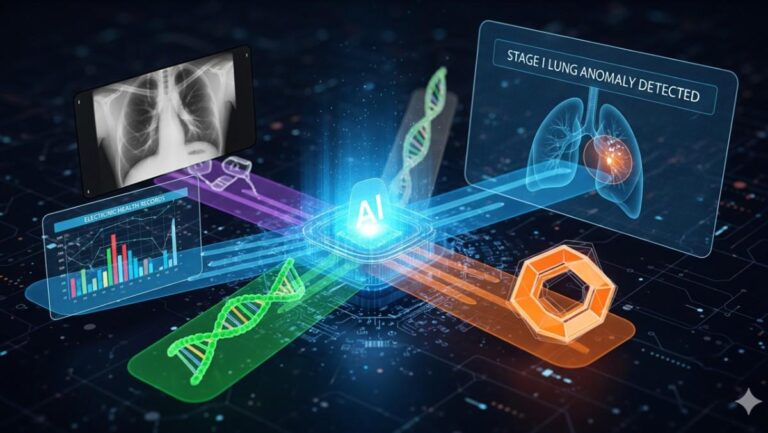Generative AI Designs Personalized mRNA Vaccines: Revolutionary Speed in Combating Emerging Pathogens
The COVID-19 pandemic demonstrated both the power and limitations of traditional vaccine development. While mRNA vaccines like those from Pfizer-BioNTech and Moderna represented breakthrough speed—developed in under a year—generative artificial intelligence is now poised to compress vaccine design timelines from months to mere days. Advanced AI systems can analyze pathogen genomics, predict optimal antigen targets, and design personalized mRNA sequences with unprecedented speed and precision, offering hope for rapid responses to future pandemics and personalized cancer immunotherapies.
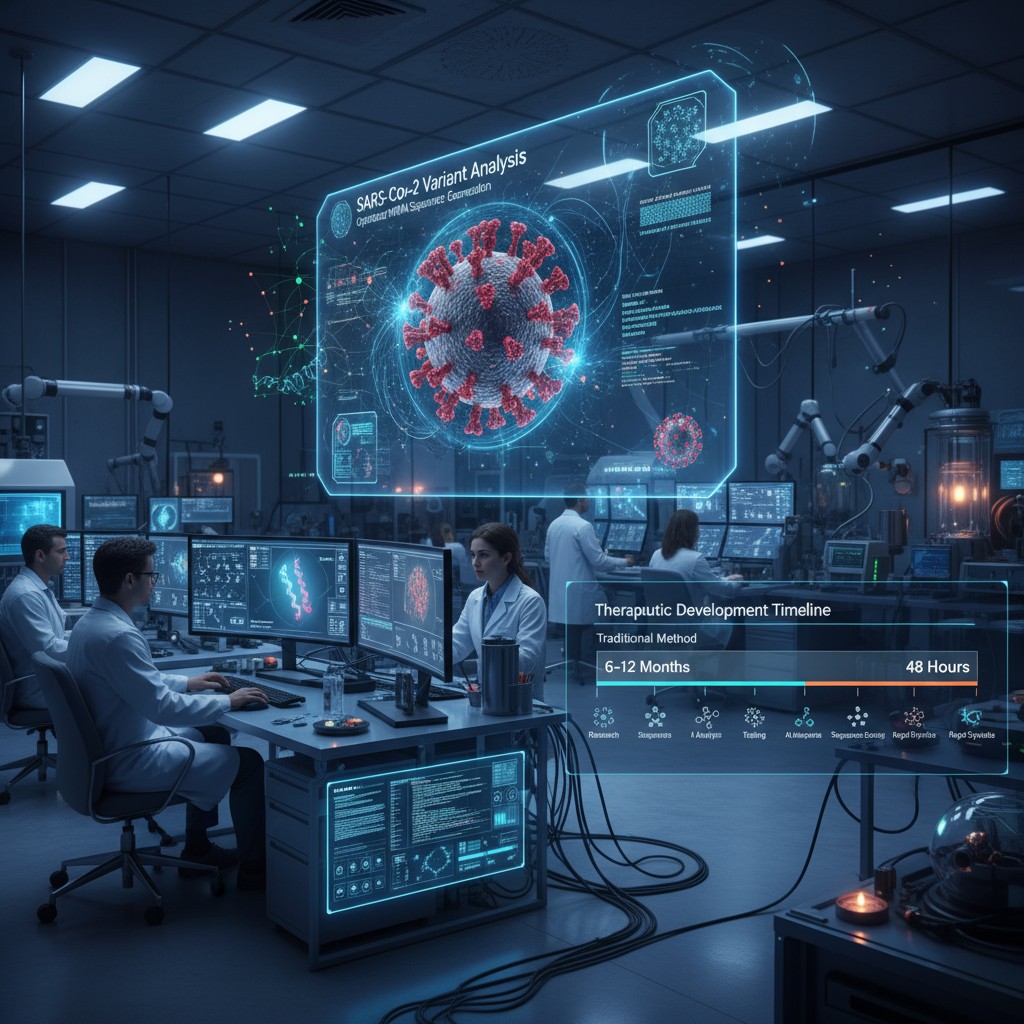
The Traditional mRNA Vaccine Development Challenge
Conventional mRNA vaccine development involves multiple time-intensive steps:
Antigen Selection: Scientists must identify which viral or tumor proteins will generate the strongest immune response while avoiding those that might cause autoimmunity or adverse reactions. This process typically requires months of laboratory screening and animal testing.
Sequence Optimization: Raw viral sequences must be modified to enhance mRNA stability, improve protein expression, and optimize immune recognition. Traditional approaches rely on trial-and-error experimentation that can take additional months.
Personalization Barriers: Creating patient-specific vaccines for cancer treatment requires analyzing individual tumor mutations and predicting which neoantigens will be most immunogenic—a process that historically takes 3-6 months per patient.
How Generative AI Transforms Vaccine Design
Rapid Antigen Prediction and Selection
Machine learning algorithms can analyze vast databases of pathogen sequences, immune responses, and clinical outcomes to predict optimal vaccine targets within hours:
Viral Variant Analysis: AI systems continuously monitor global pathogen surveillance data, identifying emerging mutations and predicting which variants pose the greatest threat to vaccine efficacy.
Immunogenicity Prediction: Deep learning models trained on HLA (human leukocyte antigen) binding data and T-cell response patterns can predict which viral sequences will generate strong, durable immune responses across diverse populations.
Safety Optimization: AI algorithms screen potential vaccine sequences against human proteomes to identify and eliminate sequences that might trigger autoimmune responses or cross-reactivity with essential human proteins.
Sequence Optimization and Design
Generative AI excels at optimizing mRNA sequences for maximum therapeutic benefit:
Codon Optimization: AI systems optimize the genetic code to enhance protein production while maintaining structural integrity, improving vaccine efficacy.
Stability Enhancement: Machine learning models predict and design mRNA modifications (such as pseudouridine incorporation) that increase vaccine stability and duration of protein expression.
Delivery Optimization: AI algorithms design mRNA sequences that work optimally with specific lipid nanoparticle formulations, enhancing cellular uptake and immune activation.
Real-World Applications and Performance
Pandemic Preparedness
AI-powered vaccine design platforms are already demonstrating remarkable capabilities:
Rapid Response Systems: Several biotech companies have developed AI platforms capable of designing vaccine candidates for novel pathogens within 48-72 hours of sequence availability, compared to traditional timelines of 6-12 months.
Variant Adaptation: AI systems can continuously update vaccine designs as new pathogen variants emerge, potentially enabling “living vaccines” that adapt in real-time to evolutionary pressure.
Cross-Protection Prediction: Machine learning algorithms identify conserved viral regions that provide broad protection against multiple strains, informing universal vaccine strategies.
Personalized Cancer Vaccines
AI is revolutionizing therapeutic cancer vaccine development:
Neoantigen Identification: Deep learning models analyze patient tumor sequencing data to identify personalized neoantigens—unique tumor proteins that can serve as vaccine targets.
HLA Matching: AI algorithms predict which neoantigens will bind most effectively to each patient’s specific HLA molecules, optimizing personalized immune responses.
Manufacturing Integration: AI systems coordinate personalized vaccine production, reducing manufacturing timelines from months to weeks.
Technical Architecture and Innovation
Advanced Machine Learning Models
Modern AI vaccine design platforms employ sophisticated architectures:
Transformer Networks: These models, similar to those used in natural language processing, can understand complex biological sequences and predict optimal modifications.
Generative Adversarial Networks (GANs): These systems generate novel vaccine sequences by pitting generator networks against discriminator networks, evolving optimal designs through competitive learning.
Reinforcement Learning: AI agents learn to optimize vaccine designs through iterative improvement, guided by predictive models of immune response and safety.
Multi-Modal Data Integration
Successful AI vaccine design requires integration of diverse data sources:
Genomic Data: Pathogen and host genetic sequences provide the foundation for vaccine design.
Immunological Data: Databases of immune responses, antibody binding, and T-cell activation inform efficacy predictions.
Clinical Outcomes: Real-world vaccine performance data trains models to predict which designs will succeed in human populations.
Structural Biology: 3D protein structures guide rational design of immunogenic vaccine antigens.
Clinical Evidence and Validation
Speed and Accuracy Improvements
Clinical studies and industry reports demonstrate significant advantages of AI-designed vaccines:
Design Speed: AI platforms consistently reduce vaccine design timelines by 90-95%, from months to days or weeks.
Prediction Accuracy: Machine learning models achieve 80-90% accuracy in predicting immune responses to novel vaccine sequences, compared to 60-70% for traditional methods.
Cost Reduction: Automated design reduces preclinical development costs by 50-70% through improved success rates and reduced experimental requirements.
Successful Clinical Translations
Several AI-designed vaccines have advanced to clinical trials:
Personalized Cancer Vaccines: Multiple biotech companies have initiated clinical trials of AI-designed personalized cancer vaccines, with early results showing promising immune responses and safety profiles.
Universal Influenza Vaccines: AI-designed universal flu vaccines targeting conserved viral regions have entered Phase I trials, potentially offering years-long protection against multiple strains.
Next-Generation COVID Vaccines: AI-optimized COVID vaccine candidates designed to provide broader protection against variants are advancing through clinical development.

Addressing Technical and Regulatory Challenges
Validation and Safety
AI vaccine design must meet rigorous safety and efficacy standards:
Computational Validation: AI predictions require extensive computational validation using multiple independent algorithms and databases to ensure accuracy.
Preclinical Testing: Despite AI optimization, vaccines still require animal testing and safety evaluation before human trials.
Regulatory Pathways: Health authorities are developing new frameworks for evaluating AI-designed vaccines, balancing innovation with safety requirements.
Quality Control and Standardization
Reliable AI vaccine design requires robust quality control:
Data Quality: Training datasets must be carefully curated to avoid bias and ensure representation across diverse populations.
Algorithm Transparency: Regulatory agencies increasingly require explainable AI that can justify design decisions and predictions.
Standardization: Industry groups are developing standards for AI vaccine design platforms to ensure consistency and reliability.
Economic Impact and Accessibility
Cost-Effectiveness Analysis
AI vaccine design offers substantial economic benefits:
Development Cost Reduction: Faster design cycles and higher success rates significantly reduce overall vaccine development costs.
Manufacturing Efficiency: Optimized designs require smaller doses and simpler manufacturing processes, reducing production costs.
Global Health Impact: Rapid vaccine design enables faster responses to emerging threats, potentially saving millions of lives and trillions in economic damage.
Democratizing Vaccine Development
AI platforms could democratize access to vaccine technology:
Reduced Barriers: Automated design reduces the specialized expertise required for vaccine development, enabling smaller companies and academic institutions to participate.
Global Distribution: Cloud-based AI platforms could provide vaccine design capabilities to researchers worldwide, regardless of local resources.
Pandemic Preparedness: Rapid AI design capabilities could help ensure equitable vaccine access during future pandemics.
Future Directions and Innovation
Next-Generation Capabilities
Emerging AI technologies promise even more sophisticated vaccine design:
Foundation Models: Large language models trained specifically on biological sequences could provide general-purpose vaccine design capabilities.
Multi-Target Vaccines: AI systems are being developed to design vaccines targeting multiple pathogens simultaneously, offering broad protection with single administrations.
Adaptive Vaccines: Future AI systems may design vaccines that can be rapidly modified post-deployment as pathogens evolve.
Integration with Manufacturing
AI vaccine design is increasingly integrated with production systems:
End-to-End Automation: Platforms are being developed that seamlessly transition from AI design to automated manufacturing, further reducing timelines.
Quality Prediction: AI systems predict manufacturing outcomes and optimize production parameters for each vaccine design.
Supply Chain Optimization: Machine learning algorithms optimize global vaccine distribution based on predicted demand and manufacturing capacity.
Regulatory and Ethical Considerations
Approval Pathways
Regulatory agencies are adapting to AI-designed vaccines:
Expedited Review: Some agencies are developing accelerated approval pathways for AI-designed vaccines targeting emerging threats.
Continuous Learning: Regulatory frameworks are evolving to accommodate vaccines that improve through real-world data collection.
International Harmonization: Global coordination is essential for ensuring AI vaccine standards are consistent across borders.
Ethical Implications
AI vaccine design raises important ethical questions:
Equity: Ensuring AI-designed vaccines benefit all populations, not just those with access to advanced healthcare systems.
Privacy: Protecting patient genetic data used in personalized vaccine design.
Autonomy: Maintaining human oversight in critical vaccine design decisions despite AI automation.
AI Vaccine Design Pipeline
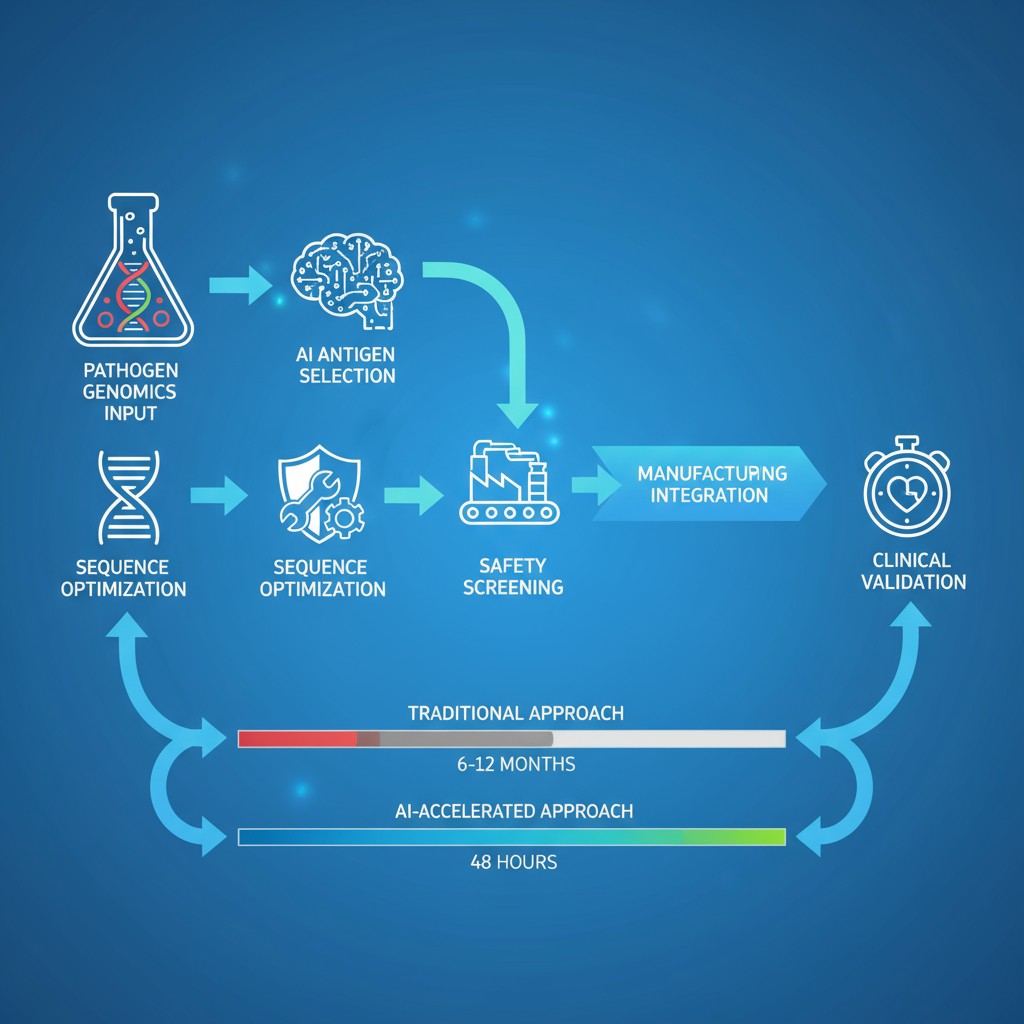

Conclusion: Transforming Vaccine Development for the Digital Age
Generative AI represents a paradigm shift in vaccine development that could fundamentally change how humanity responds to infectious disease threats. By compressing design timelines from months to days, these systems offer unprecedented capability to respond rapidly to emerging pandemics while enabling truly personalized therapeutic vaccines for cancer and other diseases.
The integration of machine learning with vaccine science promises not only faster development but also more effective and safer vaccines through rational design and comprehensive safety screening. As regulatory frameworks adapt and clinical evidence accumulates, AI-designed vaccines will likely become standard practice rather than experimental curiosity.
The implications extend far beyond speed improvements. AI vaccine design could democratize vaccine development globally, enabling rapid responses to local disease outbreaks and providing powerful tools for addressing health disparities. This technology represents a crucial component of pandemic preparedness and offers hope for addressing some of humanity’s most challenging infectious diseases.
The future of vaccine development is intelligent, adaptive, and personalized—powered by artificial intelligence that can design life-saving vaccines faster than pathogens can evolve to evade them.

